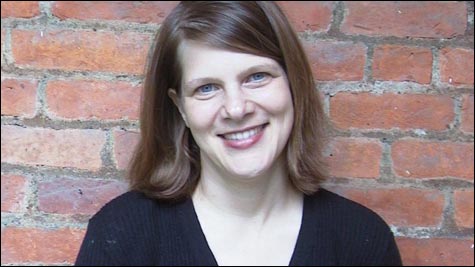
DETAIL-ORIENTED: Barry’s eye and ear save her stories from the generic. |
| Later, at the Bar: A Novel in Stories | By Rebecca Barry | Simon & Schuster | 224 pages | $22 |
A man walks into a bar. The story could have been anywhere, and the man — or woman — anyone. But in Rebecca Barry’s debut collection, a series of 10 linked short stories, even generic hard-luck tales are marked by with the specific. The hard-drinking denizens of Later, at the Bar may be nobodies, but they’re individual nobodies, and all with their own sorrowful histories. Even the communal watering hole of the title, Lucy’s Bar, has a tale, its mullioned windows and many shelves surviving from its days as an apothecary before it was converted to its current use by a former Alaska fisherwoman who had been lured to upstate New York by a short-lived love. It’s through such details that Later, at the Bar comes alive, depicting a community through sequential profiles, all as natural as the thirst for whiskey on a winter night.If that sounds sad, so be it, but like whiskey, this book is also warming. The stories start and end with death, yet even with these mortal bookends they celebrate the melancholy joy of life. In the opener, “Lucy’s Last Hurrah,” Lucy is “eighty-two and her bones were tired” when she walks out into a winter storm. She’s no longer running the bar by then, having turned it over to her lesbian bartender, Rita, so “none of her regulars knew she was quietly freezing to death that night, as they drifted in for happy hour and stayed out until dawn.” But, as with many of these stories, that sense of sadness, longing, and even inappropriate drinking fits. “It’s all right,” Lucy is imagined to be thinking, “The heart is right to cry. Oh, darlings, enjoy the night.”

Richard Russo fans will notice that Barry mines similar territory: Lucy’s Bar and Russo’s Empire Grill are set in the same kind of close-knit, dysfunctional Rust Belt community, where old loves and rivals rub up against each other because there’s nowhere else to go. But Barry makes the Lucy’s Bar crowd her own with detail that works like a gesture drawing, creating memorable characterization in a few strokes. Not much is explained, and not much needs to be; this novel is composed of short stories because Barry wastes no words. There’s Linda, the advice columnist who rarely tells the truth — and whose own confidences to her long-distance boyfriend are filed under “Letters Not Sent.” Grace, who “had given up hard liquor and cigarettes a few years before, after she’d found a lump in her breast, but she missed her old bad habits.” And Bill, who had “sworn off women since his last girlfriend, Trish, left him for a piano tuner, but because Madeleine was new, and because she didn’t seem to care if he lived or died, Bill found himself keeping an eye on her.”
There’s a sameness in these stories — few of the relationships survive, largely because of the amount of alcohol the characters consume — and yet they manage to be just different enough. In large part that’s because Barry understands language beyond words. What we want, what we fail to grasp or to articulate, individuates us as much as what we say. And sometimes even the most tongue-tied manage to communicate, as when Bill reaches out to Madeleine by making soup, alone, in the deli kitchen. The outcome of his mute message isn’t immediate. But in Barry’s hands, Bill’s silent message becomes poetry, the soup’s rich scent reaching out to “let her know that Bill knew as well as she did what it was like to come and go places alone.”